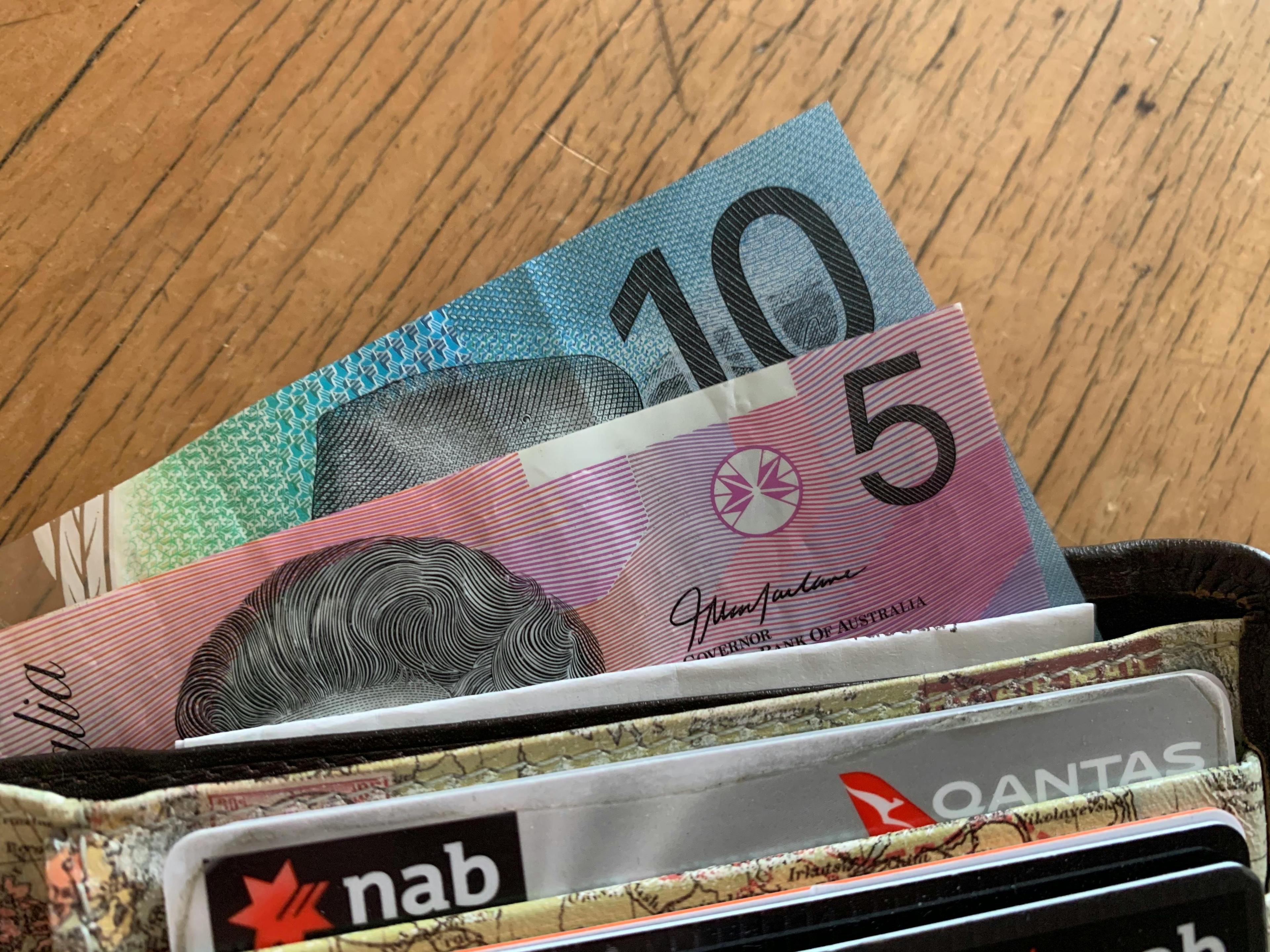
Why Your Real Estate Agent May Not Always Prioritise Your Best Interests
Agents are paid to close, not always to maximise your price. Learn how commissions, pressure tactics and conflicts of interest affect vendors—and what to do instead.
Introduction
When you hire a real estate agent to sell your property, you expect them to act in your best interests at all times. After all, you’re paying a 2–3% commission in Australia on a successful sale, which can amount to tens of thousands of dollars. Most agents genuinely want happy clients (referrals and reputation matter), but the traditional commission-based model can create subtle misalignments of incentive between agents and their clients. In other words, your agent’s financial motivations might not always line up perfectly with your goal of getting the best outcome. In this post, we’ll explore why this conflict can happen, using recent insights and examples from the industry, and what it means for vendors (and even buyers) in Victoria and across Australia.
The Rise of Alternatives (and What to Consider)
With traditional commissions under scrutiny, there’s a growing interest in alternative ways to sell real estate. In the U.S., new rules and lawsuits are challenging old commission models. In Australia, while the vast majority of sellers still use agents, a small but noteworthy minority are going For Sale By Owner (FSBO) or using fixed-fee services. Only around 1–2% of Australian homes are sold privately without an agent, compared to about 10% in the U.S. That low number is partly due to the dominance of realestate.com.au and Domain (which historically haven’t allowed private individuals to list easily), but things are changing. Flat-fee online platforms and private sale agencies now help vendors advertise on those major portals, handle inquiries, and even provide negotiation support – all for a fraction of a typical commission. The idea is to eliminate or reduce the percentage-based commission so that incentives are more aligned. If you’re paying an agent a fixed fee or a much smaller commission, you might combine that with your own effort in the sale process, essentially retaining more control.
Of course, going DIY or flat-fee has pros and cons. You save money and ensure no one is pressuring you to take a subpar deal (since you’re in the driver’s seat), but you also take on the work and responsibility that full-service agents normally would handle. Not everyone has the time or expertise to do that, which is why traditional agents aren’t disappearing yet – and a good agent does bring real value in terms of market knowledge, negotiation skill, and saving you time. The key is making an informed choice. If you do work with an agent, choose one with a great track record and consider discussing these incentive concerns upfront. A reputable agent will acknowledge the issue and can outline how they ensure your goals come first (some genuinely do go above and beyond to get top dollar, because their business depends on happy clients). You can also negotiate terms that motivate the agent to achieve your definition of success – for instance, a bonus for exceeding a certain price, or a shorter agency agreement term so they don’t get complacent.
Table Of Contents
The Commission Conundrum: Incentives vs. Your Best Price
A typical "For Sale" sign outside a property. Traditional commission structures can sometimes create misaligned incentives between real estate agents and their clients.
Real estate agents are paid on commission, meaning they earn a percentage of the sale price. Intuitively, you’d think this means they are motivated to get you the highest price possible – the more you earn, the more they earn. However, in practice the incentive for getting a slightly higher price is often very weak. The difference in commission for a higher sale price may be trivial for the agent while hugely significant for you as the seller. For example, one analysis shows that if an extra month of marketing could fetch $10,000 more on the sale, that’s a big win for the vendor – but for an agent earning, say, 3%, it’s only about $300 extra in commission. Even at a 6% total commission split between listing and buyer’s agents (common in the US), that $10k gain might yield at most $600 more for the agents. An academic breakdown by economists Steven Levitt and Stephen Dubner (of Freakonomics fame) found a similar result: on an average home, getting 1% higher price might net a typical listing agent only around $50 extra after splitting with their brokerage. In simple terms, an agent is unlikely to work an extra week or month for just a few hundred dollars more, even though that higher price means thousands more for you.
What happens when real estate agents sell their own homes? Interestingly, studies found they behave differently when their own money is on the line. Levitt and Dubner’s research revealed that agents kept their own properties on the market longer and ended up selling for about 3% higher prices (roughly an extra $10,000 on a $300k home) compared to homes they sold for clients. They waited an extra 10 days on average to secure the better deal. This implies that when the incentive was truly aligned (maximizing their profit), they were willing to hold out for the best price – something they might not do to the same extent when it’s your home. It’s not necessarily that agents are “greedy” or malicious; it’s that human nature and weak incentives push them toward the faster transaction that guarantees a commission check, rather than squeezing out every last dollar for you.
Quick Sale vs. Top Dollar: The Push for Speed over Price
Time is money for real estate agents. Because they typically only get paid when a sale closes (no salary in most cases), there’s pressure to close deals quickly. An agent who spends extra weeks or months trying to get a marginally higher price might miss out on other sales in that time. From their perspective, it can make more sense to encourage you to accept a “good enough” offer quickly and move on to the next listing. As one industry expert bluntly put it, “Agents are incentivized to sell a home faster, even if they could have gotten a slightly higher price if they marketed it a bit longer.” Waiting an extra month for a small increase might simply not make financial sense for them. In fact, a veteran real estate lawyer notes a common pattern: when agents compete for your listing, they may talk up a high potential price, but once you’ve signed with them, you’ll often be told to lower your price for a quicker sale (suddenly that “old roof” or other flaws get pointed out). This bait-and-switch scenario is unfortunately familiar to many sellers.
Consider a recent example from Sydney: A homeowner in Marrickville signed up with an agent who initially quoted a high price range for the property. Just two weeks later, the agent urged the seller to “reconsider your expectations” and suggested dropping the asking price by a whopping $500,000. You can imagine the shock and frustration for the owner. This owner felt the agent was more interested in a quick, easy sale than achieving the best result, and ultimately decided to fire the agent and sell privately. Such drastic mid-campaign price cuts can leave a sour taste, reinforcing the idea that the agent’s interest lies in any sale (and commission) rather than the best sale for the client.
Even less dramatic examples are telling. Agents might subtly push you to accept the first decent offer that comes along. If a somewhat acceptable offer is on the table, they know they are close to locking in their commission. At that point, some agents may stop putting in maximum effort – fewer open houses, less marketing – essentially coasting until contracts exchange. Why exert energy to find a better backup offer or drive up the price when one offer is already in hand? From the seller’s viewpoint, this is risky: if that initial offer falls through, you’ve lost valuable market time and potentially other interested buyers. Plus, even if it doesn’t fall through, who’s to say another buyer wouldn’t have come along and sparked a bidding war or a higher offer if the marketing had continued? The agent’s priority to “bank” the deal can conflict with your priority to maximize the sale outcome.
Conflicts of Interest and Dual Loyalties
Real estate is an industry rife with potential conflicts of interest. One of the most significant is the issue of who the agent is really representing in a transaction. By law, an agent you hire as a vendor has a fiduciary duty to you – they must act in your best interest, be loyal, and disclose anything that might affect you. The reality, however, can be more complicated when the agent’s own income is on the line.
One classic conflict occurs with commission-splitting and dual representation. In Australia, it’s common to have a single agent or agency handle the sale, but sometimes buyers come in with their own buyer’s agent, or agencies agree to share commissions for bringing in a buyer. If your agent has the opportunity to find a direct buyer (one not represented by another agent), they may quietly prefer that outcome – because it means keeping the entire commission in-house. In markets like the U.S., a listing agent who sells directly to the buyer often keeps the full 5–6% commission instead of splitting it with a buyer’s agent. Even in Australia, a conjunctional sale (co-listed or co-introduced by two agents) means splitting the fee. This creates a temptation: an agent might give priority to buyers who come through them directly, possibly neglecting or downplaying offers from buyers introduced by outside agents. While agents are supposed to present all offers objectively, there’s wiggle room in how they “pitch” those offers to you. A less scrupulous agent could frame an offer from their own buyer in a more favorable light (“they’re really keen and qualified!”) while being lukewarm about an outside offer (“this other buyer seems a bit iffy…”). The danger is that you, as the seller, might not get the full picture or could be swayed away from what actually is the highest or best offer, all because your agent is eyeing a double commission.
Another conflict arises with high-volume agents juggling many listings. If your property is harder to sell – maybe it’s unusually priced, or niche, or needs more marketing – an agent may quietly devote less attention to it, focusing instead on “low-hanging fruit” listings that are easier to turn over. It’s not fair, but it happens. As one real estate commentary noted, an agent with multiple clients might lose enthusiasm for a tough sell and spend their time on other properties that will definitely sell and earn commission, essentially putting your listing on the back burner. For you, that property is likely your biggest asset and you need every bit of effort to get it sold; for them, it’s one of many, and triaging their workload by potential payoff is only natural. This is a case where the agent’s business interest (prioritizing time where it yields the most income) can leave your best interest (selling your unique property) out in the cold.
The Buyer's Agent Dilemma: Who Are They Fighting For?
So far we’ve focused on sellers, but what if you’re on the other side – a buyer? You might assume your buyer’s agent’s goal is to get you the lowest price possible on a home. After all, they’re your agent, right? The truth is, the traditional commission setup actually gives backward incentives for buyer’s agents. Since their fee is a percentage of the sale price (often covered by the seller or built into the price), a buyer’s agent earns more when you pay more. This is the flip side of the seller’s agent issue, and it’s arguably even more directly misaligned. If you manage to negotiate $20,000 off the home’s price, you as the buyer save a lot of money – but your agent just took a pay cut by making that happen. In fact, any hard bargaining they do on your behalf directly reduces their commission. As a 2023 analysis by the Federal Reserve Bank of Richmond put it, “the harder and smarter the buyer's agent negotiates on behalf of her client, the less she gets paid at closing.”. That’s a pretty glaring conflict of interest.
Now, a good buyer’s agent will still fight for you – many prioritize client satisfaction and long-term referrals over one transaction’s dollars. But the structure is clearly not ideal. In some cases, buyer’s agents might subtly steer clients toward more expensive properties or be less aggressive in negotiations, just because there’s no financial incentive to secure a rock-bottom price for the buyer. In the U.S., concerns about this misalignment have grown so loud that there are new industry rules and even lawsuits challenging how commissions are arranged. In Australia, dedicated buyer’s agents (who you hire and pay directly) often charge flat fees or fixed percentages, which can eliminate the incentive to inflate the price. The key point is awareness: as a buyer, don’t be afraid to question your agent’s advice, do your own research on value, and remember that their paycheck is coming from the transaction itself.
When Ethics Meet Reality: What It Means for You
None of this is to say that all real estate agents are untrustworthy or that they’re consciously working against you. The vast majority do want a happy client at the end of the day, and they rely on repeat business and word of mouth. There are also laws and professional codes of conduct in place to protect consumers. Agents in Victoria (and elsewhere in Australia) have legal fiduciary duties – loyalty, honesty, disclosure, reasonable care, etc. – to their clients. And there are consequences for breaches of trust or overtly unethical behavior. For instance, underquoting (deliberately advertising a property for far less than its likely value to drum up buyer interest) is illegal. Victoria has cracked down on this practice, issuing over $1 million in fines to dozens of agents for underquoting in the last couple of years. The law requires that advertised price ranges reflect the seller’s true expectations and any offers already rejected, to prevent agents from misleading buyers (and wasting everyone’s time). So, regulators are aware of these conflicts and are watching out for consumers.
That said, many of the issues we discussed – pushing for quick sales, not fully pursuing every last dollar, favoring certain buyers – happen in the gray areas even when basic laws aren’t broken. An agent can fulfill their legal obligations and still not truly be maximizing your outcome. Human nature, as noted earlier, plays a role. It’s hard to expect someone to work much harder for essentially the same pay. This is why some experts recommend structuring your engagement with an agent to better align incentives. For example, you might negotiate a tiered commission (a common practice in Australia): the agent gets X% up to a certain price, but a higher percentage for any amount above that. This way, if they get you a significantly higher price, they reap a reward too. Another tip is to keep an eye on the campaign’s progress: if your agent is pressuring you to drop price early or accept the first offer, don’t hesitate to ask for justification – is it truly the market speaking, or just the agent’s impatience? Getting an independent appraisal can provide a reality check if you suspect an agent initially misquoted your home’s value to win your listing and is now low-balling.
Conclusion: Stay Informed and Protect Your Interests
In an ideal world, hiring a real estate agent would guarantee that an experienced professional is 100% focused on your best interests – whether that’s squeezing out every last dollar on a sale, or helping you snag your dream home at the lowest possible price. In reality, the standard commission system has inherent flaws that can pull an agent’s focus in other directions. Understanding this isn’t meant to make you distrustful of every agent, but rather to empower you as a consumer. When you know how the game is played, you can ask better questions, set up better agreements, and ultimately make decisions that serve your interests.
Takeaways for sellers: Don’t be shy about discussing pricing strategy and commission structure with your agent. Ask them how they will ensure you get the best price, not just a quick sale. If an agent is very quick to push price reductions or accept early offers, make sure it’s justified by market feedback and not just their urgency. Consider exploring new-age selling options if you feel traditional agents aren’t offering value for their cost – there are now agencies that charge fixed fees, or services that let you handle some parts of the sale yourself (and thus save on commission).
Takeaways for buyers: Remember that while your agent should advocate for you, you ultimately guard your own best interest. Do your homework on property values, and don’t hesitate to walk away from a deal if it doesn’t feel right – even if your agent seems eager for you to sign. You can also seek out buyer’s agents who work on a different fee basis (some charge by hour or a flat search fee) to remove the price-driven conflict.
In the end, the real estate industry is gradually moving toward more transparency and better alignment with clients. As a vendor in Victoria or anywhere in Australia, being aware of these dynamics can save you money and heartache. Your home is likely one of your biggest financial assets; make sure whoever you enlist to help you sell it is truly on your side. And if you ever sense they’re not, you have options – you can negotiate harder, you can find someone else, or sometimes, you can even be your own agent. The more informed you are, the better the chance that you (not the agent) will come out on top when the sold sticker finally goes up.
Adi Joshi
Principal Agent | SaleMate
SHARE ON
The Latest
View allExplore Similar Blogs
Read our blogs to know more about the realities real estate

The Biggest Misconceptions About FSBO in Australia
News

Why Your Real Estate Agent May Not Always Prioritise Your Best Interests
News

Housing Affordability Crisis in Australia
News

Why Real Estate Commissions Are Outdated
News
